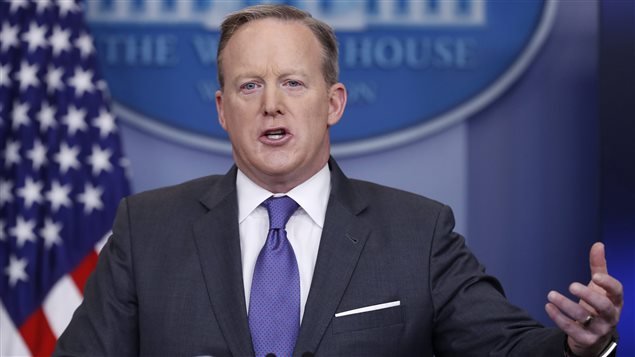The repercussions of Sunday’s attack on the Quebec City mosque that killed six people and wounded 19 others are being felt in Washington with the White House invoking the attack to defend its travel ban on people from seven majority-Muslim countries.
In his Monday daily briefing, press secretary Sean Spicer began by telling reporters that President Donald Trump had called Prime Minister Justin Trudeau to express his country’s condolences, prayers and any law-enforcement help Canada might need.
“It’s a terrible reminder of why we must remain vigilant and why the president is taking steps to be proactive, not reactive,” Spicer continued, apparently referring to Trump’s executive order to indefinitely ban Syrian refugees and suspend travel by people from Iran, Iraq, Sudan, Somalia, Yemen and Libya for three months.
Spicer did not mention the fact that the suspect in the attack, 27-year-old Alexandre Bissonnette, is a Canadian and the victims were Muslim.
Trump’s conversation with Trudeau followed a chaotic weekend that saw demonstrations in cities across the U.S. and confusion at the Canadian-U.S. border with several Canadian dual citizens saying they had been turned back when trying to enter the U.S.
After first saying the ban would apply to dual citizens from the affected countries, the U.S. said it would not affect those living in Canada, who number about 35,000.
However, Canadian officials say they are awaiting written assurances on the matter.
Five victims of Sunday’s attack remain in hospital. Two will need more surgery, while the other three are stable and may be discharged soon.
Another 14 people have been released.
Thirty-nine people escaped the mosque without injuries.







For reasons beyond our control, and for an undetermined period of time, our comment section is now closed. However, our social networks remain open to your contributions.